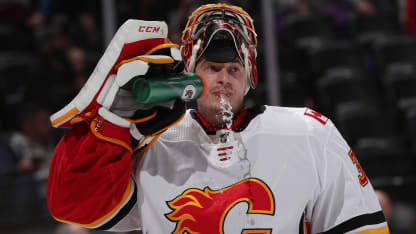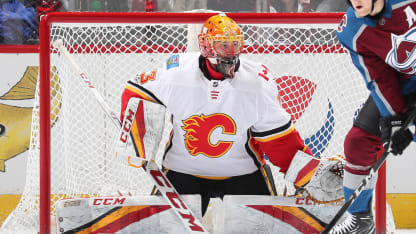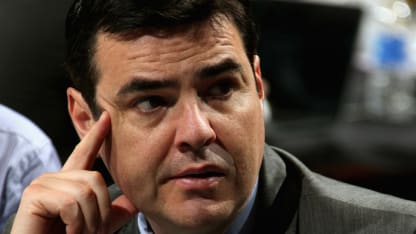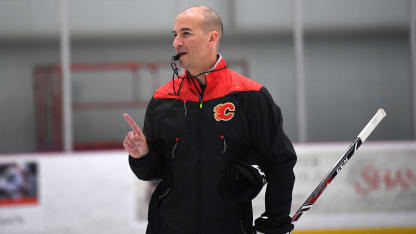"If we can keep having success on the ice,'' says Huska, "that helps in teaching these younger guys the importance of winning, of competing hard day-in and day-out, which accelerates growth, not only how to improve as an individual but succeed as a team.
"Which, of course, benefits Calgary, too. Because this is a results-based business and if they can learn how to win here, they carry that on to the next level, whenever they might get there. It becomes ingrained in them.
"Last year was the first year of my three in the organization where I felt were really made a dent in creating that sort of culture and that's only grown so far this season.
"We were exhausted for a couple years there, it as difficult getting guys to catch on to what we wanted. As last season went on, they started to understand, we saw more success on the ice, saw more guys reach the point of being ready if they got the call-up.
"We've been able to carry on with that this year. We want to continue that blueprint, make Stockton a place where guys want to be, where teams coming in to play against us know they're in for a difficult night, which is part of learning how to win."
What can be really demoralizing for players so eager to make that proverbial next step is a lack of movement between levels.
"We felt that a bit last season,'' Huska admits. "We had more guys ready to make the jump, in my mind, but both of our teams were very healthy so there was little movement. At least compared to my first two years in the organization.
"That can start to play on a player's mind. They're wondering if they're ever going to get that chance - it's only human nature, everyone has dreams and ambitions - and can wind up affecting their game.
"So when they do see guys receiving opportunities, like Brett and Janko this year, and taking advantage of them, it allows all the players that hope that 'Hey, it might be me next. It does happen. And if I do things right the way, I'm going to get a chance to play.'"
More and more are.
Even more will.























